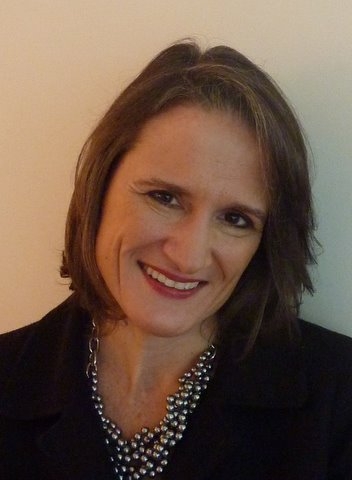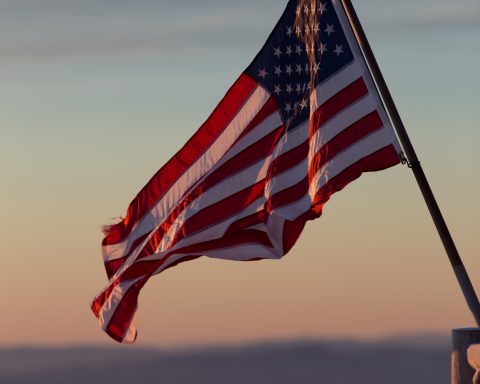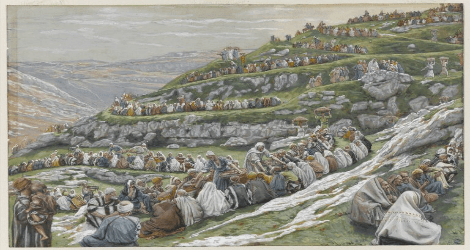Prophetic Commission
The final verse of chapter 59 reads, “And as for me, this is my covenant with them, says the Lord: my spirit that is upon you, and my words that I have put in your mouth, shall not depart out of your mouth, or out of the mouths of your children, or out of the mouths of your children’s children, says the Lord, from now on and forever more” (v. 21). This, then, is our charge. If we recognize that justice is turned back and complain that truth is stumbling in the public square; if we confess our complicity in the injustice; if we affirm our reliance on God’s grace and power; then we are finally to embrace the covenant commitment and accept the prophetic commission from God to speak God’s word of justice, to speak God’s word that would be good news to the oppressed, liberty to the captives, and release to the prisoners.
The Bible is rife with examples of prophets who were not thrilled with the prophetic commission laid upon them. They claimed to be too young to speak God’s prophetic word. They claimed to be lousy public speakers. They weren’t thrilled at the criticism directed at them for speaking God’s prophetic word. It was often a lonely and daunting task to be a prophet.
___________________________________________
“The families asked for a show of hands of who would remain in the building, risking arrest. As I raised my hand, a young girl named Destiny was sitting on my lap, and she asked why I was raising my hand. ‘Do you want to be able to stay here?’ I asked. Destiny said, ‘Yes, this is my home.’ And I told her, ‘That’s why I’m raising my hand.’ She hugged me and slowly lifted her hand in the air.”
___________________________________________
This movement from complaint all the way to embracing the prophetic commission was experienced by Shane Claiborne and described in his book called The Irresistible Revolution: Living as an Ordinary Radical. Shane grew up not too far from here, in Eastern Tennessee, he describes his younger self as a pretty typical evangelical who felt some emptiness that wasn’t filled no matter how many Christian wristbands or records he bought. He wound up at Eastern College in Pennsylvania.
Well, one day he was in the cafeteria with friends, complaining about the food, when a friend showed him the day’s newspaper with an article about a group of forty homeless families who were being evicted from an abandoned cathedral in North Philadelphia. The families were with an organization called Kensington Welfare Rights Union, made up mostly of homeless mothers and children who took care of one another. They’d been living in a tent city a few blocks from the cathedral, but conditions were worsening with rats and flooding, and the cathedral had been vacant for several years. The archdiocese announced they had 48 hours to get out or face arrest. Shane later wrote,
We scarfed down the rest of our dinner with our heads spinning, wondering what we should do. This complicated the old ‘love your neighbor as yourself’ thing, which had become so manageable. Now homelessness was not just adults on the downtown streets but women and children. It wasn’t long before we were packed in a car heading into “the Badlands,” as the neighborhood was known, to look for the Cathedral… Little did we know that God’s got a thing for showing up in badlands like Kensington and Nazareth…
The cathedral was easy to spot: the families had hung a banner out front that read ‘How can we worship a homeless man on Sunday and ignore one on Monday?’ It took us a minute to realize they were talking about our Savior as a homeless man. Timidly, we walked up to the large red doors and gave them a knock. We could hear the thumping echo through the marble cavern. Several folks clumsily opened the doors and they embraced us without hesitation. Then they invited us in. And we would never be the same again. They gave us a grand tour of the shantytown they had constructed inside, and introduced us to a few of the children, who promptly stole our caps and jumped on our backs. They poured out their hearts to us, their struggles and their dreams. They reminded us that we all need each other and assured us that, if we all shared with one another, there would be enough for everyone. When we asked what we could do, they didn’t seem as interested in our stuff as they were in us. They wanted us to join them in the cathedral and to bring our friends, and they alerted us to the urgency of the looming eviction. With the laughter of the children ringing in our ears, and the weight of the families’ struggle heavy on our hearts, we went back to our college, disturbed, aching, and aware of the ticking of the clock…
The students ran around campus, putting up flyers that said, “Jesus is getting kicked out of church in North Philly, come hear about it.” To their surprise, over a hundred people showed up for the meeting and dozens came to the cathedral the following day, generating media attention and building momentum as city leaders, religious leaders, and advocates turned out to support the families sheltering in the cathedral. Near the end of the 48 hours deadline, they rang a bell to let people in the neighborhood know that the eviction was nearing. With just an hour remaining before the city officials were expected to arrive, the students, other supporters, and families shared a “last supper.”
Shane recalled, “The families asked for a show of hands of who would remain in the building, risking arrest, when the officials returned. As I raised my hand, a young girl named Destiny was sitting on my lap, and she asked why I was raising my hand. ‘Do you want to be able to stay here?’ I asked. Destiny said, ‘Yes, this is my home.’ And I told her, ‘That’s why I’m raising my hand.’ She hugged me and slowly lifted her hand in the air.”
___________________________________________
I wonder, with God’s spirit upon you and God’s words in your mouth, what will you proclaim?
___________________________________________
Well, when the officials came to evict the families, they saw the crowd and crawled back into the car. Days and weeks passed, the students got an air horn and cell phones to mobilize the campus when there was a renewed threat of eviction, and they would go back to the cathedral to face down the officials. So the end of that story, finally, is that the families held a press conference… many received housing and some people donated homes; city agencies were persuaded to provide housing; and friends pulled together to make sure everyone was taken care of. The Kensington Welfare Rights Union announced this had been a project of survival and wasn’t intended to be permanent, and was grateful for the power of the people. They marched to the Mayor’s office and left a pile of shoes with the invitation to “walk in their shoes” and see the world through their eyes.
Shane, who wrote “It was in St. Ed’s that I was born again… again,” later founded an intentional Christian community in Philadelphia, has served alongside mother Teresa in India and in hospitals in Iraq, and there is much more to his journey and the countless people he has met and struggled for justice alongside.
But Shane looks back to that first day where the most pressing thing was complaining about the cafeteria food, and—with a child named Destiny, the families of St. Ed’s, and by God’s grace—he moved to embrace the prophetic commission to work for justice and righteousness.
Sacred Space
Each of us is invited to move from complaint to confession, to affirmation of faith, and finally to embracing the prophetic commission to speak truth to power and work for justice in the public square, in our common life. I wonder, with God’s spirit upon you and God’s words in your mouth, what will you proclaim? How will you work to bring truth and righteousness and justice to the public square? Because the public square is indeed sacred space.
Here, this chapel, is surely sacred space: a place where we seek a vision of the world God intends; where we confess our sin when we individually and collectively fall short of what God intends, where we are assured of God’s pardon; this chapel is a place where we affirm our faith in God’s saving grace and power; a place where we respond in faith and leave with both charge and blessing.
So too, my friends, is the public square a sacred space—the public square is a sacred space in which we seek a vision of the world God intends and protest when it doesn’t reflect God’s justice; a place where we are called to confess our sin as a society, to affirm our faith in God’s saving grace and power; and it is a place to respond in faith and accept the charge and blessing of God’s commission to prophetic action. May it be so for each of you; for all of us. Amen.
 The Rev. Shannon Daley-Harris has served the Children’s Defense Fund for more than 20 years, coordinating the National Observance of Children’s Sabbaths and directing the Samuel DeWitt Proctor Institute or Child Advocacy Ministry. She also leads spiritual retreats, writes for the faith community, and preaches, speaks, and leads workshops to engage congregations in child advocacy. Her work with CDF is a validated ministry of the PC(USA). Shannon has served several terms on the Leadership Team of PHEWA‘s Presbyterian Child Advocacy Network, which she helped found.
The Rev. Shannon Daley-Harris has served the Children’s Defense Fund for more than 20 years, coordinating the National Observance of Children’s Sabbaths and directing the Samuel DeWitt Proctor Institute or Child Advocacy Ministry. She also leads spiritual retreats, writes for the faith community, and preaches, speaks, and leads workshops to engage congregations in child advocacy. Her work with CDF is a validated ministry of the PC(USA). Shannon has served several terms on the Leadership Team of PHEWA‘s Presbyterian Child Advocacy Network, which she helped found.






Unbound Social